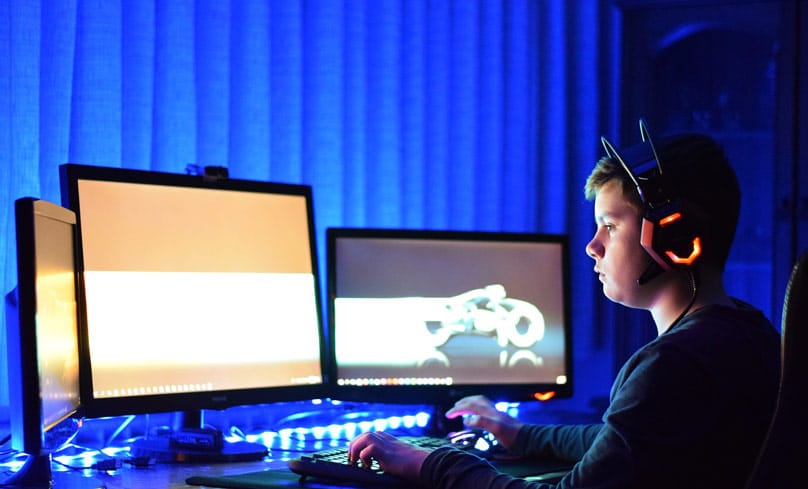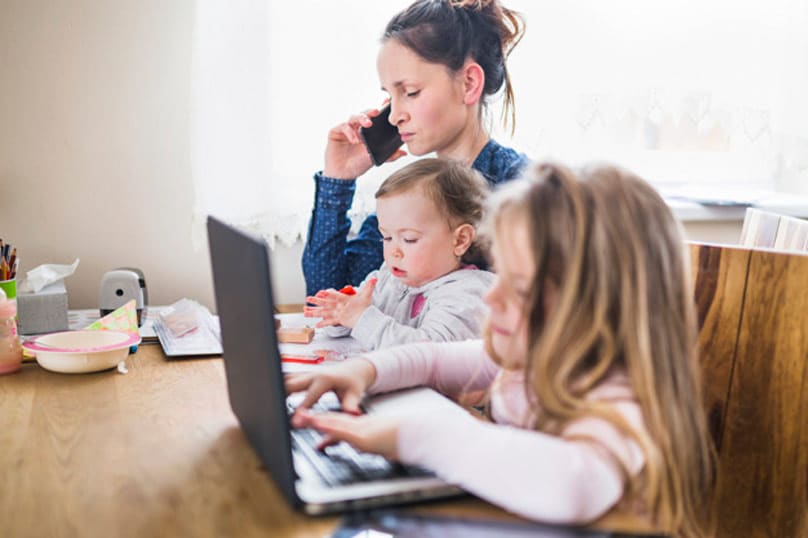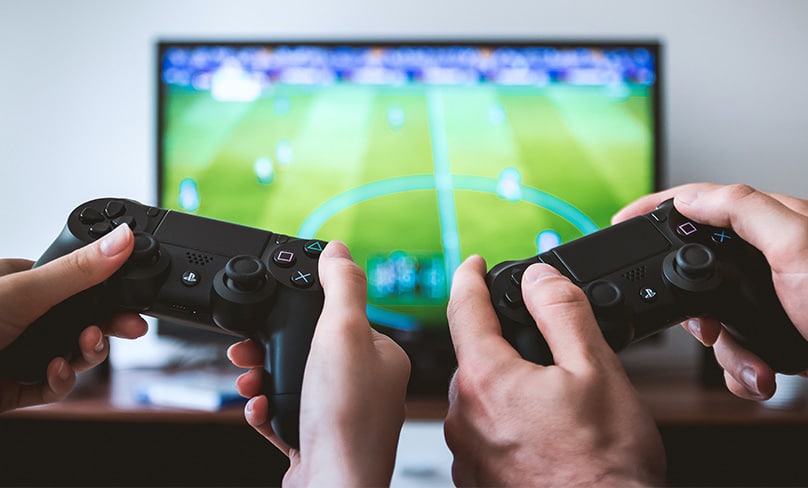
School holidays, combined with Sydney’s endless rain, can only mean one thing: kids on the couch playing video games.
Yet after years of COVID-19 lockdowns many parents have moved from irritation to anxiety about the time their children are spending gaming, the kinds of games they are playing, and who they might be meeting online.
Internet-related anxieties are on the top of the list for parents, according to The Royal Children’s Hospital Melbourne’s 2021 child health poll.
Over 90 per cent of parents reported excessive screen time as their number one concern, with cyberbullying coming second, followed by internet safety in third place.
“Parents need a shift in perspective because of how ever-present screens have become.”
However, only 25 per cent of parents thought it was a problem in their own family, with over twice as many thinking it was a big problem for other people in the community (57 per cent).
Yet findings by Australian and international experts are increasingly giving worried parents reasons to believe gaming, despite its appeal to youth, is within the family’s power to moderate.
Dr Kate Highfield, a senior lecturer at the Australian Catholic University and expert in technology and early childhood education, told The Catholic Weekly that parents need a shift in perspective because of how ever-present screens have become.
“We still talk about ‘screen time’ – how much time we spend on screen. Time is just one metric. What we should be looking at is ‘screen quality’,” she said.

‘Screen quality’ is something parents have to decide for themselves; families can no longer avoid making conscious decisions about what media their family consumes.
“I don’t want a child watching one minute of a violent video game,” Dr Highfield said.
“That doesn’t align with my worldview, it doesn’t align with my belief structure. I think it’s thoroughly inappropriate.”
Dr Highfield said parents should take the time to have conversations with their children around what kinds of games, media and other technology are good quality and correspond with the family’s values.
“It gives kids and teenagers a chance to explore new worlds and scenarios, extend their real-life friendships, learn teamwork skills and engage in ‘immersive learning’.”
She recommends parents use technology with their kids to “create”, rather than to passively “consume”.
Dr Peter Holmes, a theologian at the University of Notre Dame, Sydney, has taught on the intersection of video games and Christian morality, plays games himself, and says that gaming presents both risks and benefits for children and teenagers.
On the one hand, it gives kids and teenagers a chance to explore new worlds and scenarios, extend their real-life friendships, learn teamwork skills and engage in “immersive learning”.
But with the explosion in online gaming, children are also at risk from strangers online.
Dr Holmes says a basic rule for children should be that you’re not friends with people in online games you don’t know in real life.

“When you’re a teenager relationships are hard enough with your friends, let alone with the opposite sex, let alone with navigating your own changes of life and figuring out what you think’s important,” Dr Holmes said.
“If you’re put in an online scenario where not everyone is who they seem to be, and they’re presenting themselves in a very one-dimensional way, it can totally mess you up.”
Both Dr Highfield and Dr Holmes say the best way for parents to help their children navigate these risks is actually to get involved and to play with them.
“If you happen to be engaged with them a bit, especially the younger kids, they learn how to make that call about the weird person and how to respond to this person or that person,” Dr Holmes said.
“We found it really does not matter how much gamers played. It wasn’t the quantity of gaming, but the quality that counted.”
New scientific research is also giving parents reasons to think that their kids’ video gaming habits might not be as big a challenge as they thought.
A groundbreaking study from the University of Oxford, published in July, found that video gaming has no significant negative effect on wellbeing.
The Oxford study tracked the wellbeing and habits of 40,000 gamers across six weeks.
For the first time, major game development companies released internal data without control over how it would be published.
“We found it really does not matter how much gamers played. It wasn’t the quantity of gaming, but the quality that counted,” Andy Przybylski, one of the researchers, said.
“And it seems that why you are playing is the key factor.”
